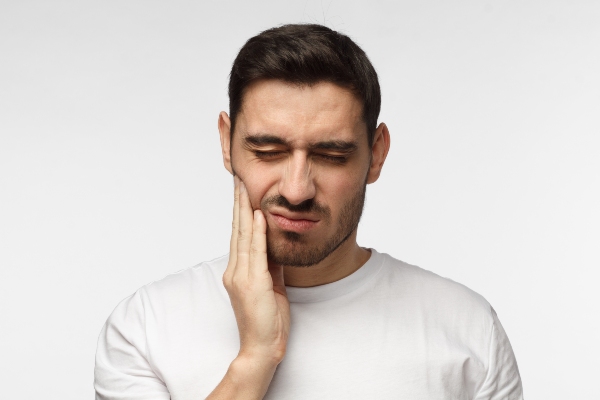How Dentists Use Botox

Dental Botox® surprisingly pretty versatile when it comes to what it can be used for. It plays the role of an elective procedure that removes age lines and other superficial imperfections. Additionally, general dentists and oral surgeons incorporate dental Botox® into their treatment plans.
Read on to learn more about how dental Botox® can be used for cosmetic and therapeutic purposes.
The science behind dental Botox®
The active ingredient of Botox® is a dangerous yet useful toxin. Under the wrong circumstances (like botulism), the Botulinum toxin can cause paralysis throughout the body. However, the fact that Botox® causes paralysis is what makes it useful.
Being a neurotoxin, Botox® inhibits the action of motor neurons. Motor nerve endings transmit electrical impulses that cause muscle contraction. When Botox® blocks such nerves, it renders the muscles immobile.
Botox® also removes the nerves’ ability to transmit pain signals. Below are a few ways that dental Botox® can be used.
1. Correction a gummy smile
Some people have a smile where their lip retracts past the teeth and the gums. Their smile exposes the gums, making for an unattractive look. A cosmetic dentist will use dental Botox® to limit the retraction of the lip muscles.
2. Reduction of smile lines
With age, many people develop lines at the corner of their lips or either side of the mouth. These lines become more prominent when a person laughs or makes certain movements with their mouth.
Dental Botox® causes the muscles around the lips to relax and stretch out, which in turn stretches the skin that covers them. This effectively reduces the appearance of wrinkles.
3. Management of facial pain
Most disorders of the jaw cause pain around the jaw, ears and facial muscles. Sometimes, the conditions cause chronic headaches. A dentist can use therapeutic dental Botox® to cut off the transmission of pain signals to the brain.
Usually, a dentist will use Botox® to manage the pain as they diagnose and treat the underlying cause.
4. To stop jaw clenching, teeth grinding and other jaw disorders
To grind their teeth, a patient needs to clench their jaw, exerting pressure on the teeth and the jawbone. The person cannot clench their jaw if the motor nerves that control the jaw muscles fail to fire electrical impulses. A dentist may use dental Botox® to deactivate these nerves.
Botox® offers relief from Bruxism and jaw clenching, giving the dentist a chance to address the underlying causes like:
- Stress
- A bad bite
- TMJ
- An otherwise malformed jaw
In this scenario, dental Botox® can act as a standalone treatment that manages the condition. It can also be used as part of a treatment plan that may involve corrective procedures that target the structures around the jaw.
5. Improving the healing process after oral surgery
Being a paralytic, dental Botox® can act as a pharmaceutical splint. A dentist may use Botox® to deactivate the jaw muscles and prevent a patient from clenching their jaw after oral surgery.
A patient who goes home with a loaded dental implant could benefit from dental Botox®. By deactivating the jaw muscles at the site of the implant, dental Botox® will keep the jaw muscles from clenching and putting pressure on the implant and the surrounding bone.
The same goes for any procedure where the jawbone needs time to heal without undue pressure put on it.
Learn more about dental Botox®
Reach out today to get started with dental Botox! Our team is readily available to assist you.
Request an appointment here: https://www.mytotaldentistry.com or call McCarthy Dentistry at (740) 546-5178 for an appointment in our Marietta office.
Check out what others are saying about our services on Yelp: Read our Yelp reviews.
Recent Posts
TMJ treatment can ease jaw pain, clicking, and stiffness. The jaw joints and the muscles around them work hard every day to support speaking, chewing, and yawning. When these joints become unbalanced, patients may notice soreness, popping sounds, headaches, or even a feeling that the jaw locks or shifts. A dentist evaluates these symptoms, looks…
Dental implants are one of the most reliable and lasting solutions for replacing missing teeth. Unlike traditional dentures or bridges, implants integrate with the jawbone to provide a stable foundation for artificial teeth. While many patients benefit from implants, not everyone is an immediate candidate. Certain factors must be evaluated to determine eligibility, and for…
Dental implants provide a long-term solution for those missing teeth, improving oral health and function. However, patients should learn as much as possible before the procedure to ensure the most effective treatment outcome. Asking the right questions during a consultation can help you make informed decisions about your oral health. Here are five essential questions…
Dental implants offer more than just cosmetic benefits. They restore oral function, improving speech and chewing efficiency while preserving jawbone structure. These long-lasting solutions provide stability and durability, making them a preferred choice for patients who want to replace one or more missing teeth.Missing teeth can impact speech clarity. Gaps between the teeth may lead…


